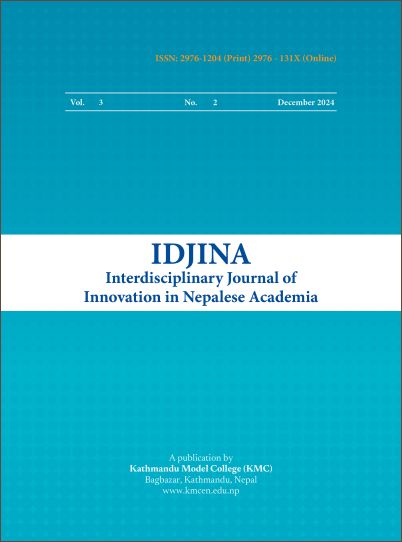Voters’ Perception and Women's Electoral Success in Nepal: An Econometric Analysis
Keywords:
Election, gender, inclusion, ordered logit, voter’s perceptionAbstract
This research explores the socio-cultural and institutional barriers to women's electoral success in Nepal, focusing on voter perceptions of female leadership. It aims to estimate the likelihood of voting for women candidates in the existing socio-economic and political dynamics. The study employed a quantitative research design. An ordered logistic regression model analyzed responses from 385 individuals from the Rupandehi district, utilizing a structured questionnaire. Findings reveal surprising trends, notably that female respondents exhibit a lower likelihood of supporting female candidates, indicating internalized biases and societal expectations regarding gender roles. Male respondents show varied biases influenced by education and occupation. The research highlights those patriarchal norms significantly hinder women’s political support, while positive factors like social media engagement can shift perceptions over time. The study highlights the urgent need for targeted interventions, such as expanded gender quotas and awareness campaigns, to address systemic biases and enhance women’s political representation, thereby contributing to gender equity in Nepal’s political landscape.
Downloads
Downloads
Published
How to Cite
Issue
Section
License

This work is licensed under a Creative Commons Attribution-NonCommercial-NoDerivatives 4.0 International License.
This license allows reusers to copy and distribute the material in any medium or format in unadapted form only, for noncommercial purposes only, and only so long as attribution is given to the creator.




